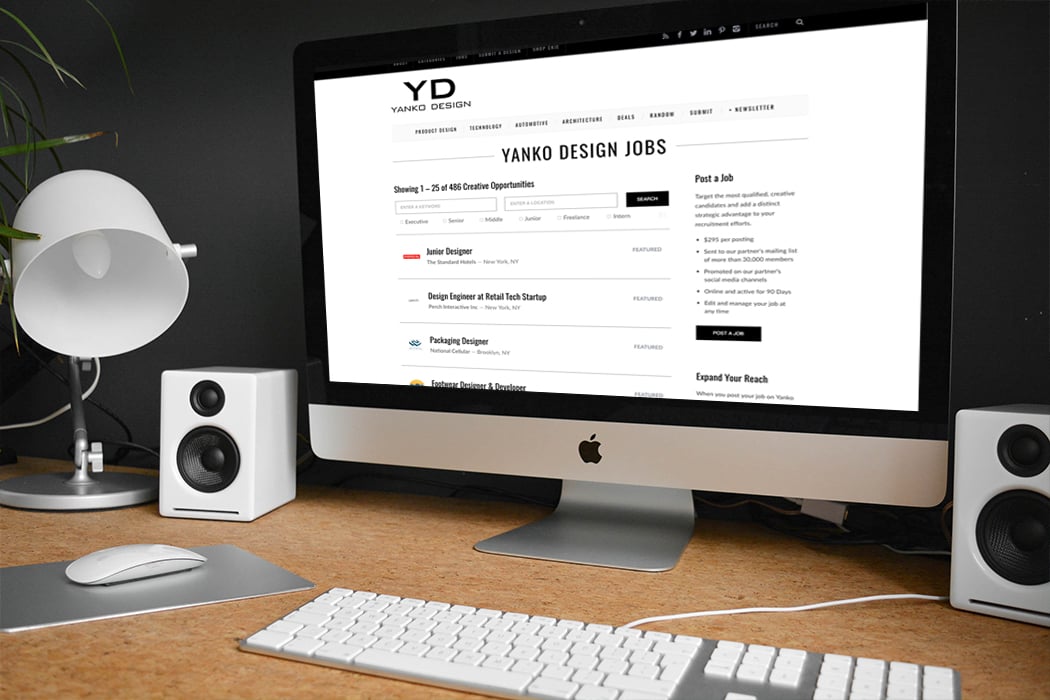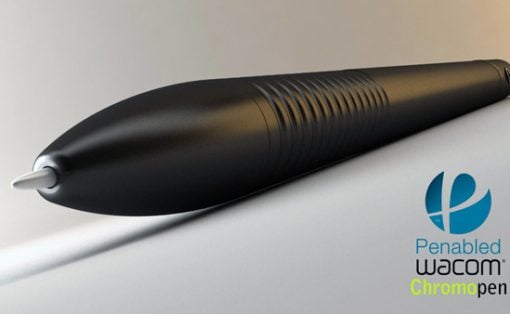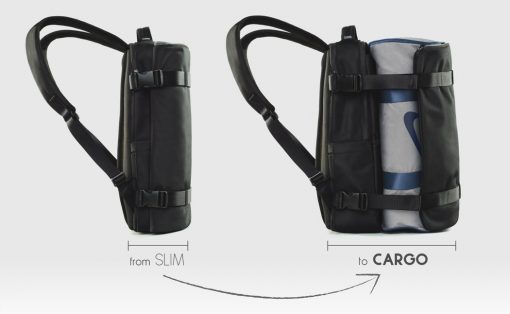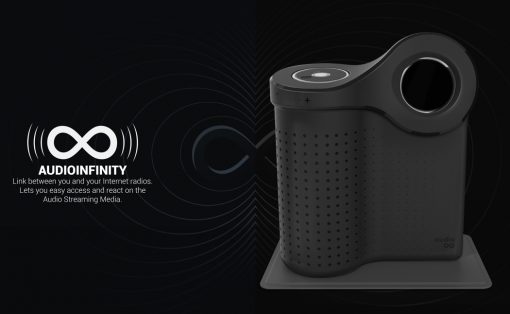It is an amazing feeling to get accepted at that coveted company after all the hard work and turmoil of interviews and design exercises. In that moment of joy, it is easy to accept the offer before us and agree to the terms and conditions laid out. However, in hindsight, there may be some things that we lack clarity on and one of the best ways to identify those is to sleep on it, think and revisit the job offer with a clear, practical mindset and check if we have covered all our priorities. And, if not, the time before you accept the job offer is the best time to iron out those niggling doubts. The article below by Heather Phillips (Director of Design @ goabstract) tackles these and many other things you need to keep in mind before accepting the job offer.
Looking for an amazing internship or job opportunity? Check out YD Job Board to work at some of the best design companies in the world.
Hiring designers? Post a job with us to source the best talent for your requirement.
The role is exactly what you’ve been looking for, the salary is competitive, the benefits package looks great, you believe in the mission of the company, and they have a cold brew on tap! You can’t wait to sign — but you shouldn’t, yet.
Every now and then, I see a designer who’s over the moon to sign with a company, only to find after 6 months that the job isn’t what they expected.
It can be easy to get swept up in the excitement of an offer, or the relief of leaving an old employer and putting the job search to rest. But urgency enables short-sighted decisions. If you sign with the wrong expectations for a new role, you might find yourself in a worse spot than where you started. And leaving a job after just a few months is a lose-lose situation: you’ll need to start the search from square one with potential damage to your reputation, while your employer loses time and other resources spent recruiting and onboarding you.
How can you avoid this fate? It all comes down to due diligence during the offer window, the handful of days after receiving an offer and before accepting it. I help place designers into top tech companies through the Designer Fund’s Bridge Program and have seen candidates receive hundreds of offers. So I’m sharing my checklist for what every designer should do before they sign on the dotted line.
First, a word of encouragement
Before we dive into the tips, I want to acknowledge that due diligence during the offer window requires you to ask your potential employer tough questions, as well as know what you need. I see candidates avoid this for a few reasons:
- “Wait, you can do that?” Some candidates simply aren’t aware that offers are negotiable and that it’s okay to keep asking questions once interviews are over.
- “I’m easy to work with.” Other candidates want to start the role with a positive relationship, appear easy to work with, and demonstrate their keen interest in the opportunity. So they just accept the offer immediately.
- “I’m afraid they’ll rescind the offer.” The most common one I see is fear-based decision making. Candidates are afraid that the company will rescind the offer if they introduce any wrinkles to the process by pushing back and asking for additional conversations.
These designers want to take the path of least resistance and just jump into their new role. But extra conversations are worth it when they set the stage for fruitful long-term relationships. The offer window is the last chance to have these discussions. And companies rarely rescind offers, especially in a healthy job market and in a healthy relationship between candidate and employer. An employer wants you, and they’ve invested in your recruitment. Be polite in all your communications, and you’ll find that companies will be happy to engage.
Ready for the first tip?
Dispel ambiguity before you sign (even if it means having tough conversations)
Make sure you and your potential employer are on the same page about your role before you sign an offer. Pick up any stones that have been left unturned, paying special attention to these areas:
- Roles and responsibilities: How will your responsibilities overlap and intersect with those of your teammates and cross-functional counterparts?
- Title: Does your title match your experience level and feel congruent with what was discussed during the interview process? It’s much more difficult to make a jump to a higher-level title once you’ve started the job, so the offer window is the best time for title-related discussions.
- Success and rewards: What does success look like in 3, 6, 12 months? Who will evaluate you and what criteria will they use? How will success be rewarded, and what is the culture around bonuses, equity refresh, and raises?
- Advancement: What’s expected of you to advance to the next level? How soon will that evaluation happen
I once advised a designer who was thrilled to receive an offer from a company she’d been interviewing with. The position was too junior for her experience level, but the company had assured her she could advance to a senior-level role if she proved herself on the job.
The rest of the offer looked like a fit, but it left out one crucial detail: When would the company consider her promotion? The candidate assumed it would be about 6 months, but just to make sure, she asked them before signing the offer. Turns out that the company had 2 years in mind — quite a different story. Once this detail came to the surface, they were able to resolve an issue that could have been a dealbreaker in half a year.
Consider what employees say behind closed doors
The offer window is an excellent opportunity to ask for follow-up conversations with employees you didn’t get a chance to meet during interviews, such as a close cross-functional counterpart or your would-be manager. (Make sure you get face time with your boss at least once during the interview process). For earlier-stage companies, you might consider doing a “reference check” by requesting to speak with an investor or advisor to the company.
You can also ask follow-up questions of employees you met during your interviews. Many candidates only interact with the recruiter, but some conversations are more fruitful if people ask to connect with interviewers directly.
As you have these conversations, read between the lines to pick up on the company’s design culture, hierarchy, values, and personalities. Pay special attention to tone, and if an employee is overly negative about their teammates, your future projects, or company leadership, consider it a warning sign of a potentially problematic work environment. Employees should be on their best behavior when they court candidates.
For example, a designer I advised had a job interview with a startup’s engineering lead, who made an offhand comment that “design was a blocker” for a project. This comment was the symptom of a bigger issue: the engineering team and leadership didn’t value design, and it had virtually no influence at that startup. In contrast, in an interview with another company, the candidate noticed an engineer speaking openly about collaborating with design. This signaled a better environment.
Always negotiate
Only about half of designers negotiated their last salary offer, according to a July 2016 Comparably survey of over 500 designers around the country. Negotiate for what you’re worth. You can use tools such as LinkedIn Salary, Glassdoor, and Comparably to find salary benchmarks for your experience level and city. And there are many other negotiable variables in your employment terms, including equity, signing bonus, and title, which may impact future titles. You can also negotiate “softer” aspects of the package, like start date, schedule, relocation stipend, and help with the commute. Of course, the offer window isn’t about wielding newfound power or taking advantage of a negotiation position. It’s a delicate balance to ask for what you need without hitting the company with a “list of demands.” (Of course, If you have a long list of demands so late in the process, this position might not be a great fit.) I recommend that you prioritize your wishes and communicate only the top, most important ones. In fact, I’ve seen an effective tactic where a candidate chooses one item and says, “If we can agree to ‘X,’ I’ll sign today.”
One helpful employer perspective to read before an offer negotiation is First Round Capital’s “A Counterintuitive System for Startup Compensation.” Some tech companies don’t negotiate compensation in order to level the playing field or to stay consistent with their publicized or otherwise transparent comp structure. For example, Clef is upfront about their pared-down compensation system and do not negotiate salary; see their Salary and Equity Compensation to learn more.
Know your rights
Companies will often ask what your last salary was, a question you probably encountered right at the beginning of your interview process. But it can also come up again during offer negotiations.
You are not required to disclose this number at any point during interviews or negotiations. In fact, the state of Massachusetts passed a law in 2016 that makes it illegal for a potential employer to ask for a candidate’s past salary in an effort to manage bias in the negotiation process. Similar bills have been proposed in other states, including California. Check out resources like this discussion and scripts from this article on how to handle the question. Sharing your salary can sometimes stunt your future compensation, so consider diverting the discussion to industry benchmarks. You may, of course, disclose your past compensation history if you like or if it would be beneficial, but it’s a choice and not a mandate.
By the way, there are several other personal details you don’t need to share at any point during the interview or negotiation process, such as your age and marital status. At startups, in particular, interviews and follow-up discussions can be so casual they feel like a chat with friends. But you still don’t need to disclose more than you’d like to.
Pace the offer window (and beware of the ticking time bomb)
Take time think about your offer and do final research. At a minimum, sleep on it, no matter how excited you are to say yes.
You can manage the timing of your offer window by communicating with the employer. Ask questions and send updates so they know you haven’t “gone dark.” A good rule of thumb is not to take more than a week with a decision unless otherwise discussed, or they’ll wonder what’s going on. Homebrew’s guide to startup compensation has a section on offer process timing that gives employers a guide for what to expect.
Beware of exploding offers, which expire in 24 hours. We see these in tech from time to time, and if you receive one, consider why the company is using this tactic. These employers often assume that you should be ready to make an educated decision by the time you get to the offer stage, so if you need additional information before making your decision, or you’re waiting for an offer from another company, let them know. Companies are usually flexible if you ask for an extension, even if it’s just by a day or so. Whatever you do, don’t feel bullied into a commitment on the spot.
Make an educated decision with your eyes open. Once you’re confident, say yes! We hope your due diligence sets you up for a long-term, mutually beneficial, and supportive relationship.
The original write up by here.












